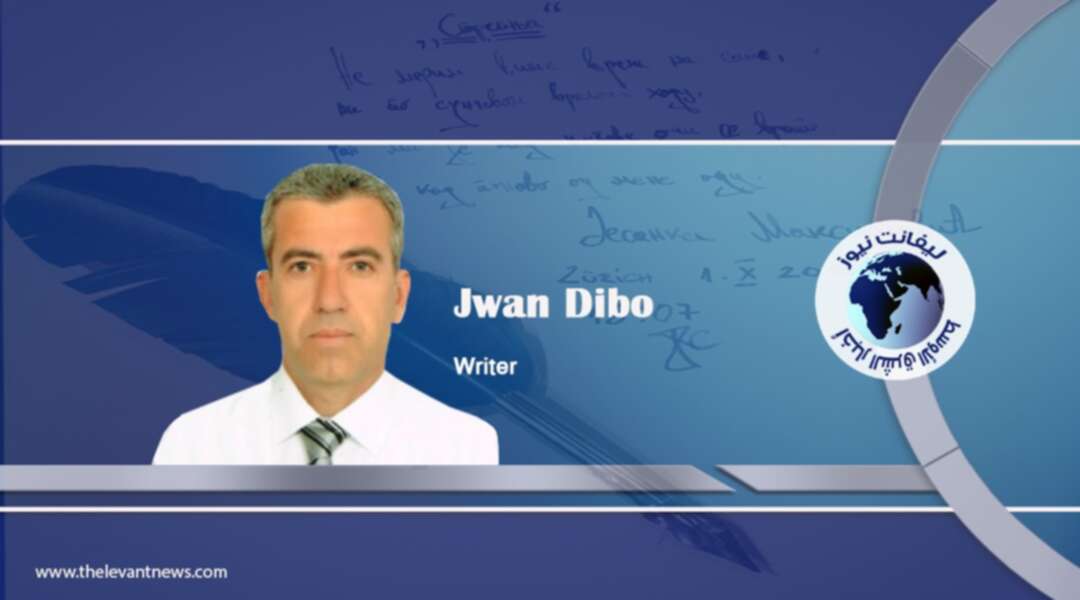-
What Encourages Erdogan’s Turkey to Intervene in the Middle East and North Africa?

Turkey’s expansion in the Middle East and North Africa has become very noticeable during recent years. This aggressive expansion is very vibrant in Kurdistan, Syria, Iraq, Libya, Somalia and elsewhere. Erdogan’s Turkey has used several means and has rested on numerous factors that reveal that this offensive enlargement at others expense is systematic and ideological.
These means and factors can be divided into internal and external.
For Erdogan, waging wars and making interferences into other countries affairs is an important source of gaining popularity at Turkish domestic level.
Likewise, it is a hot material of polarisation through municipal, parliamentary and presidential elections campaigns. The tendency of conducting external battles has become a fundamental part of Erdogan approach, especially when he has become the absolute ruler of Turkey since 2017.
Erdogan and his ruling party, The Justice and Development Party (AKP), have been suffering from multifaceted enormous difficulties. These issues almost include every single sector of life in Turkey. A recession in economy, lack of democracy, insecurity, political instability, local currency deterioration against the dollar, withdrawal of foreign investments, moving from zero-problems with neighbouring countries to zero-friends, and so on. Therefore, for Erdogan, the only way to attempt to salvage his political future and to remain in power is to distract national public opinion and to absorb local anger by waging wars and making interventions abroad.
Furthermore, Erdogan endeavours to stir up Turkish national and religious sentiments by showing himself as a historical leader who is trying to restore the glories of the ancient Ottoman Empire. In this context, Erdogan claims that Libya, to which Erdogan has sent about 16,000 Syrian mercenaries, was one of the relics of the property of his Ottoman ancestors until the year 1911, when Sultan Mehmed V abdicated Libya in favour of Italy. On the other hand, he pretends that Mosul and Kurdistan region including Kirkuk are also remnants of the defunct Ottoman sultanate, justifying his occupation of several regions in Iraqi Kurdistan.
Regionally, Erdogan has benefited from every single point that can push his plan to make interventions into other weak countries via incursions, invasions and occupation. Since the eruption of “the Arab Spring Events” in 2011, Erdogan has exploited the anarchy that swept the countries which witnessed mass protests and civil wars to get an illegitimate foothold in those countries. Therefore, Erdogan was very ecstatic at the beginning of the events of the Arab Spring, when massive popular demonstrations toppled the previous authoritarian regimes and brought the Muslim Brotherhood to power in Egypt, Tunisia and Libya.
In Syria, Erdogan embraced the Syrian opposition led by the Muslim Brotherhood and occupied dozens of Syrian cities and towns. Erdogan’s Turkey displaced hundreds of thousands of Kurds from their areas in Syrian Kurdistan. About 16,000 Syrian mercenaries were sent to Libya by Erdogan’s government to support the Brotherhood government in Tripoli and to fight the Libyan National Army. In Iraq, Turkey has occupied dozens of areas in Iraqi Kurdistan and built dozens of military bases.
Internationally, Erdogan is trying to take advantage of the contradictions between the United States and Russia in more than one place in the Middle East and North Africa, such as Syria, Iraq and Libya. Based on these inconsistencies, Erdogan has succeeded to a certain extent in expanding in neighbouring countries and the region. But, as it seems, Turkish expansion in the Middle East, North and East Africa is taking place under the tacit approval of the United States
and Russia. Instability in this region, as well as in most regions of the world, is a policy that is in the interest of the superpowers because this provides them with a permanent pretext for intervention, hegemony, and the sale of weapons. Similarly, this Turkish expansion takes place amid a failure and lack of European agreement towards this Turkish malignant behaviour, which shapes a blatant threat against European interests in Libya and the eastern Mediterranean.
Turkey has relatively succeeded, to date, to interfere in several countries of the Middle East and North Africa. The reason behind this is not because that Turkey is strong, but because it benefits from all the weaknesses of the targeted countries as well as from the dissimilarities among the major global players in those countries. These major players, apparently, admire
this Turkish salience as long as it does not form an explicit and direct threat to its interests in the region. In other words, until this moment, Turkey is moving and manoeuvring in the Middle East and North Africa within the framework permitted by America and Russia, otherwise it
would not have dared to do so

by : Jwan Dibo
You May Also Like
Popular Posts
Caricature
BENEFIT AGM approves 10%...
- March 27, 2025
BENEFIT, the Kingdom’s innovator and leading company in Fintech and electronic financial transactions service, held its Annual General Meeting (AGM) at the company’s headquarters in the Seef District.
During the meeting, shareholders approved all items listed on the agenda, including the ratification of the minutes of the previous AGM held on 26 March 2024. The session reviewed and approved the Board’s Annual Report on the company’s activities and financial performance for the fiscal year ended 31 December 2024, and the shareholders expressed their satisfaction with the company’s operational and financial results during the reporting period.
The meeting also reviewed the Independent External Auditor’s Report on the company’s consolidated financial statements for the year ended 31 December 2024. Subsequently, the shareholders approved the audited financial statements for the fiscal year. Based on the Board’s recommendation, the shareholders approved the distribution of a cash dividend equivalent to 10% of the paid-up share capital.
Furthermore, the shareholders endorsed the allocation of a total amount of BD 172,500 as remuneration to the members of the Board for the year ended 31 December 2024, subject to prior clearance by related authorities.
The extension of the current composition of the Board was approved, which includes ten members and one CBB observer, for a further six-month term, expiring in September 2025, pending no objection from the CBB.
The meeting reviewed and approved the Corporate Governance Report for 2024, which affirmed the company’s full compliance with the corporate governance directives issued by the CBB and other applicable regulatory frameworks. The AGM absolved the Board Members of liability for any of their actions during the year ending on 31st December 2024, in accordance with the Commercial Companies Law.
In alignment with regulatory requirements, the session approved the reappointment of Ernst & Young (EY) as the company’s External Auditors for the fiscal year 2025, covering both the parent company and its subsidiaries—Sinnad and Bahrain FinTech Bay. The Board was authorised to determine the external auditors’ professional fees, subject to approval from the CBB, and the meeting concluded with a discussion of any additional issues as per Article (207) of the Commercial Companies Law.
Speaking on the company’s performance, Mr. Mohamed Al Bastaki, Chairman BENEFIT , stated: “In terms of the financial results for 2024, I am pleased to say that the year gone by has also been proved to be a success in delivering tangible results. Growth rate for 2024 was 19 per cent. Revenue for the year was BD 17 M (US$ 45.3 Million) and net profit was 2 Million ($ 5.3 Million).
Mr. Al Bastaki also announced that the Board had formally adopted a new three-year strategic roadmap to commence in 2025. The strategy encompasses a phased international expansion, optimisation of internal operations, enhanced revenue diversification, long-term sustainability initiatives, and the advancement of innovation and digital transformation initiatives across all service lines.
“I extend my sincere appreciation to the CBB for its continued support of BENEFIT and its pivotal role in fostering a stable and progressive regulatory environment for the Kingdom’s banking and financial sector—an environment that has significantly reinforced Bahrain’s standing as a leading financial hub in the region,” said Mr. Al Bastaki. “I would also like to thank our partner banks and valued customers for their trust, and our shareholders for their ongoing encouragement. The achievements of 2024 set a strong precedent, and I am confident they will serve as a foundation for yet another successful and impactful year ahead.”
Chief Executive of BENEFIT; Mr. Abdulwahed AlJanahi commented, “The year 2024 represented another pivotal chapter in BENEFIT ’s evolution. We achieved substantial progress in advancing our digital strategy across multiple sectors, while reinforcing our long-term commitment to the development of Bahrain’s financial services and payments landscape. Throughout the year, we remained firmly aligned with our objective of delivering measurable value to our shareholders, strategic partners, and customers. At the same time, we continued to play an active role in enabling Bahrain’s digital economy by introducing innovative solutions and service enhancements that directly address market needs and future opportunities.”
Mr. AlJanahi affirmed that BENEFIT has successfully developed a robust and well-integrated payment network that connects individuals and businesses across Bahrain, accelerating the adoption of emerging technologies in the banking and financial services sector and reinforcing Bahrain’s position as a growing fintech hub, and added, “Our achievements of the past year reflect a long-term vision to establish a resilient electronic payment infrastructure that supports the Kingdom’s digital economy. Key developments in 2024 included the implementation of central authentication for open banking via BENEFIT Pay”
Mr. AlJanahi concluded by thanking the Board for its strategic direction, the company’s staff for their continued dedication, and the Central Bank of Bahrain, member banks, and shareholders for their valuable partnership and confidence in the company’s long-term vision.
opinion
Report
ads
Newsletter
Subscribe to our mailing list to get the new updates!






















